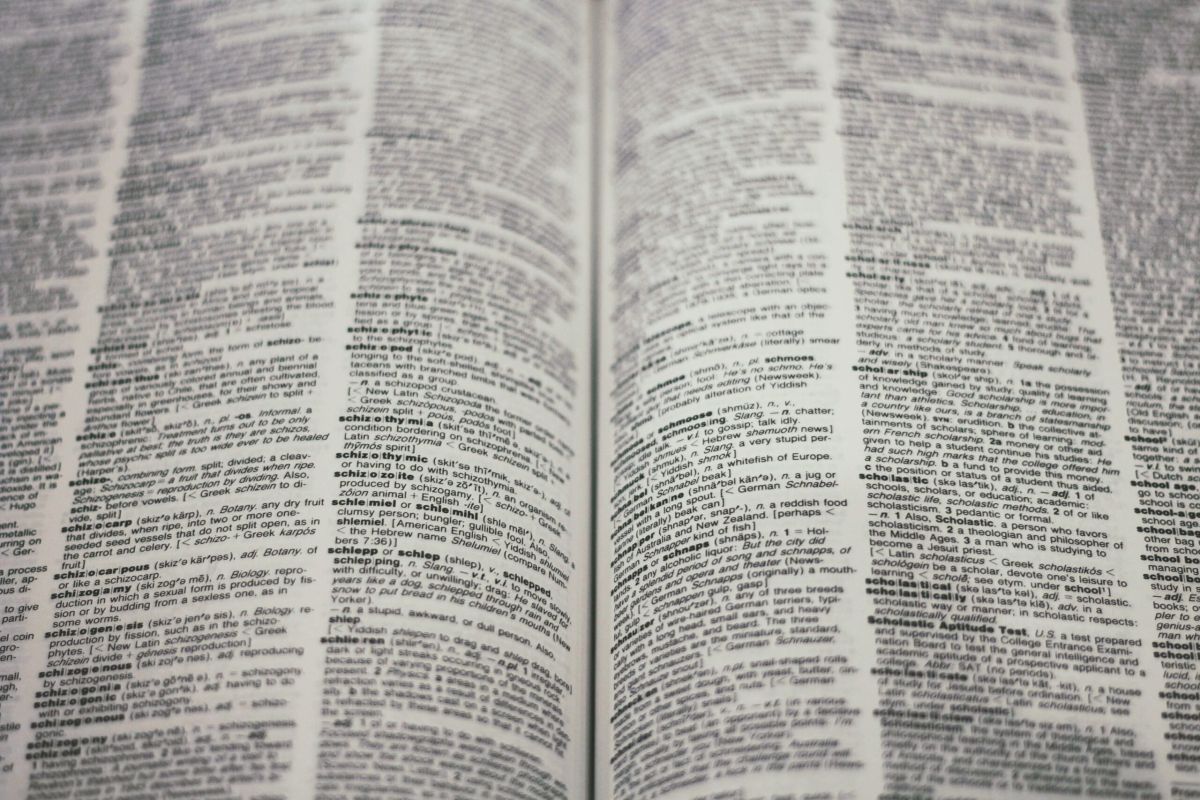2022 Words of the Year: Book recommendations from last year’s questionable picks
By theoabbott

As is the annual tradition, various dictionary publishers have picked their 2022 Word of the Year. As is also tradition, we respond to each dictionary’s pick in various predictable ways.
We cringe, yawn, or scowl at the embarrassing, boring, or bleak judgement that the words often pass on in the last year of our lives.
Turning this on its head, let’s instead pass some judgement on the words themselves and recommend some classic books along the way.
Merriam-Webster submitted ‘gaslighting’ as their Word of the Year which, for me, recalls Charlotte Gilman’s The Yellow Wallpaper, first published in 1892.
The term ‘gaslighting’ occupies an uncertain position in current popular culture; the American Dialect Society called it the ‘most useful’ new word of 2016 but the American Psychological Association dismisses it as merely a ‘colloquialism’.
In contrast, the position of Gilman’s trailblazing short story is firmly established. Despite being an easy one-day read, ‘The Yellow Wallpaper’ is packed with insight and rightly regarded as a feminist classic.
The story provides an important depiction of exactly the kind of domestic manipulation that gaslighting refers to, narrating a woman’s diagnosis with hysteria and a subsequent prescription of the ‘rest-cure’ from her husband, an outdated and unfounded treatment that has allowed many men over the years to confine troublesome women to their quarters.
The term’s origin is the 1944 psychological thriller Gaslight which, just like Gilman’s story, follows a young woman whose husband convinces her that she’s descending into insanity.
Fascinatingly, both instances seem to root this word in a historical effort to rewrite old narratives from a formerly ignored or undervalued perspective. Our next book attempts to do the same.
Cambridge Dictionary has named ‘homer’ their Word of the Year. As a typical literature student, I misinterpreted this pick as referring to the ancient Greek poet Homer and hence offer you Madelaine Miller’s 2011 novel Song of Achilles.
Miller takes on the daunting task of refashioning Homer’s Iliad, handing over the narrative perspective to Patroclus and placing his relationship with Achilles – rewritten as a queer romance – centre stage.
By most metrics, Song of Achilles successfully completes this task; having won the 2012 Orange Prize for Fiction and selling two million copies as of July 2022, it has become a modern classic in its own right.
Personally, I love that it lends a vivid and accessible emotional force to what feels like, for many readers, a pretty unapproachable source text.
Some critics, however, were not so keen – Daniel Mendelsohn for example, quite cruelly compared Miller’s writing to that of softcore pornography and SparkNotes. Just as most of us relate ‘homer’ more to the father of the Simpsons than to the father of western literature, Mendelsohn seems to situate Miller’s reworking as closer to pulp fiction than to Greek myth.
While Miller brings Iliad’s queer implications to the foreground in Song of Achilles, it wasn’t too long ago that anything considered slightly gay was subject to a prompt editorial straightening out before it touched store shelves.
Oscar Wilde’s novella The Picture of Dorian Gray is a perfect example of this. Despite first being published in 1890, we only got our first officially ‘uncensored’ version of the novella – containing all the originally scrubbed suggestions of homosexuality – in 2011, the same year that Song of Achilles was published.
Wilde and his book were saddled by the heavy moralistic baggage of Victorian Britain, so much so that passages from his ‘perverted novel’ were read out in court as he was tried on suspicion of ‘sodomy’.
Even without its literary brilliance, the history of homophobic persecution in which The Picture of Dorian Gray is steeped makes it all the more of an important read.
My mention above of potentially cringeworthy and embarrassing Word of the Year moments anticipates this next part of the article in which Wilde’s already heavily defiled classic must endure the final blow of me comparing it to Oxford Dictionary’s almost unforgivable pick – ‘goblin mode’.
Referring to behaviour which is “unapologetically self-indulgent…in a way that rejects social norms or expectations,” the word’s definition echoes the reductive charges made against Wilde’s novella.
I’ll be the first to admit, however, that the comparisons should stop there, between what is widely considered a literary masterpiece and what has to be the worst Word of the Year pick ever (it’s not even one word!).
Whilst Wilde’s novel was ahead of its time and has thus gradually shed its layers of censorship over the years, our final book foresees a future in which censorship snowballs in all parts of society.
The fact that Collins Dictionary’s Word of the Year ‘permacrisis’ applies perfectly to both our 2022 and George Orwell’s 1984 is arguably a sign that the dystopian classic is a more visionary read than ever before.
The perpetual state of war in the novel imposes a sense of permanent crisis upon the people of Oceania in a manner that bleakly recalls the pall of dread that Russia’s invasion of Ukraine has cast over Europe this past year, not to mention the countless other crises that have emerged or worsened.
Interestingly, ‘permacrisis’ being a mix of ‘permanent’ and ‘crisis’ means that the word mirrors many of the terms that 1984 has contributed to common usages, such as ‘doublethink’, thoughtcrime’, and ‘Newspeak’ – also all combinations of other words.
Both seem to arise out of situations in which what is considered normal or acceptable has changed so much that standard language no longer feels sufficient to describe it – language must be amended and edited to suit the severity of the circumstances.
Looking back at the year gone and attempting to sum it up with singular terms forces us to confront the same problem – how inadequate words can be in expressing the whole truth and complexity of a situation. Particularly if that word is ‘goblin mode’.







